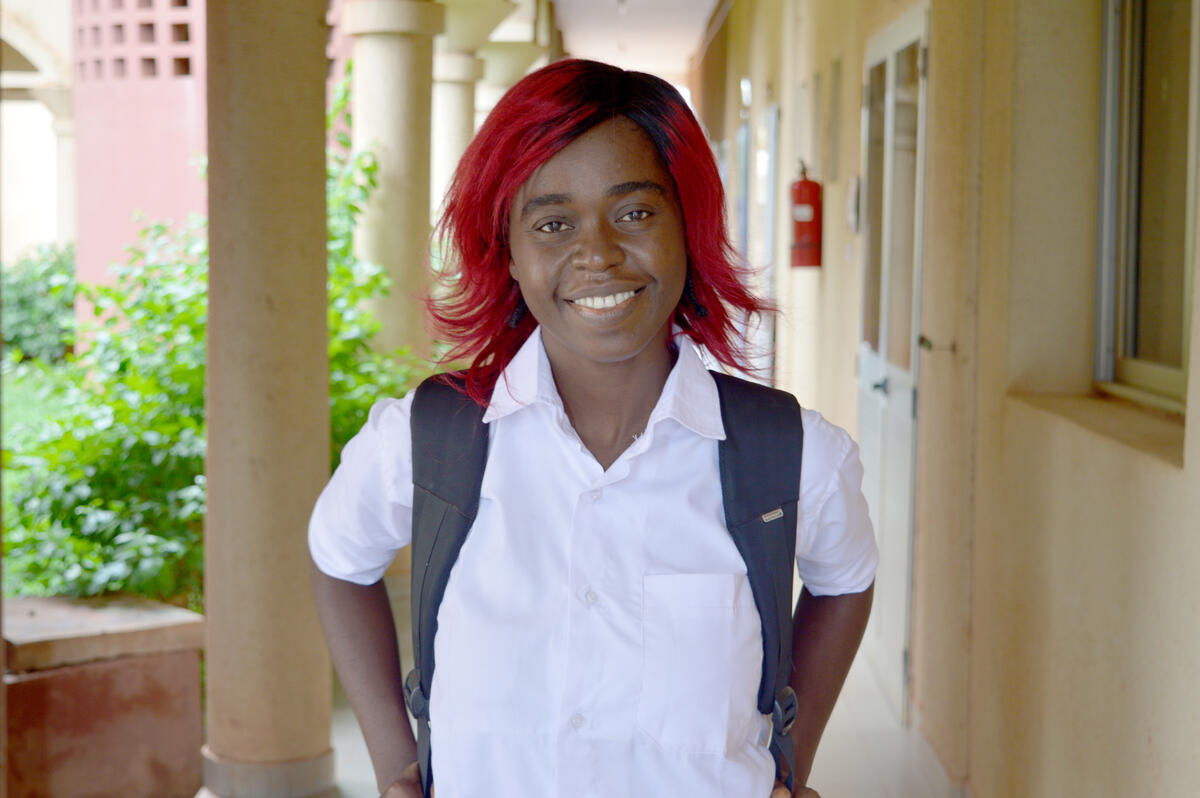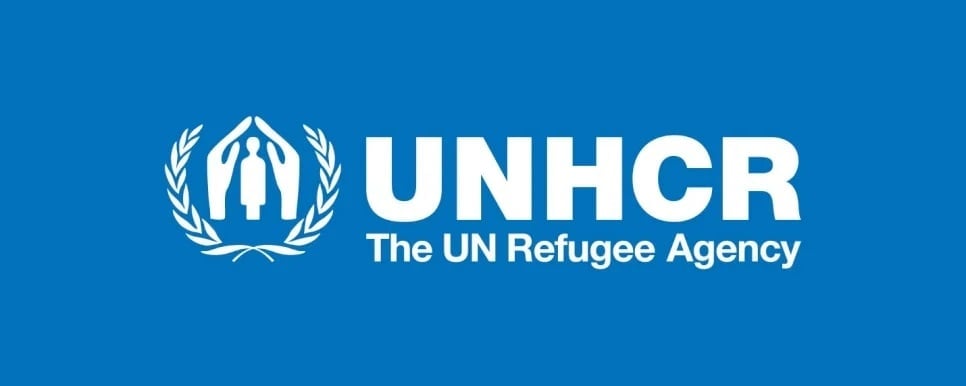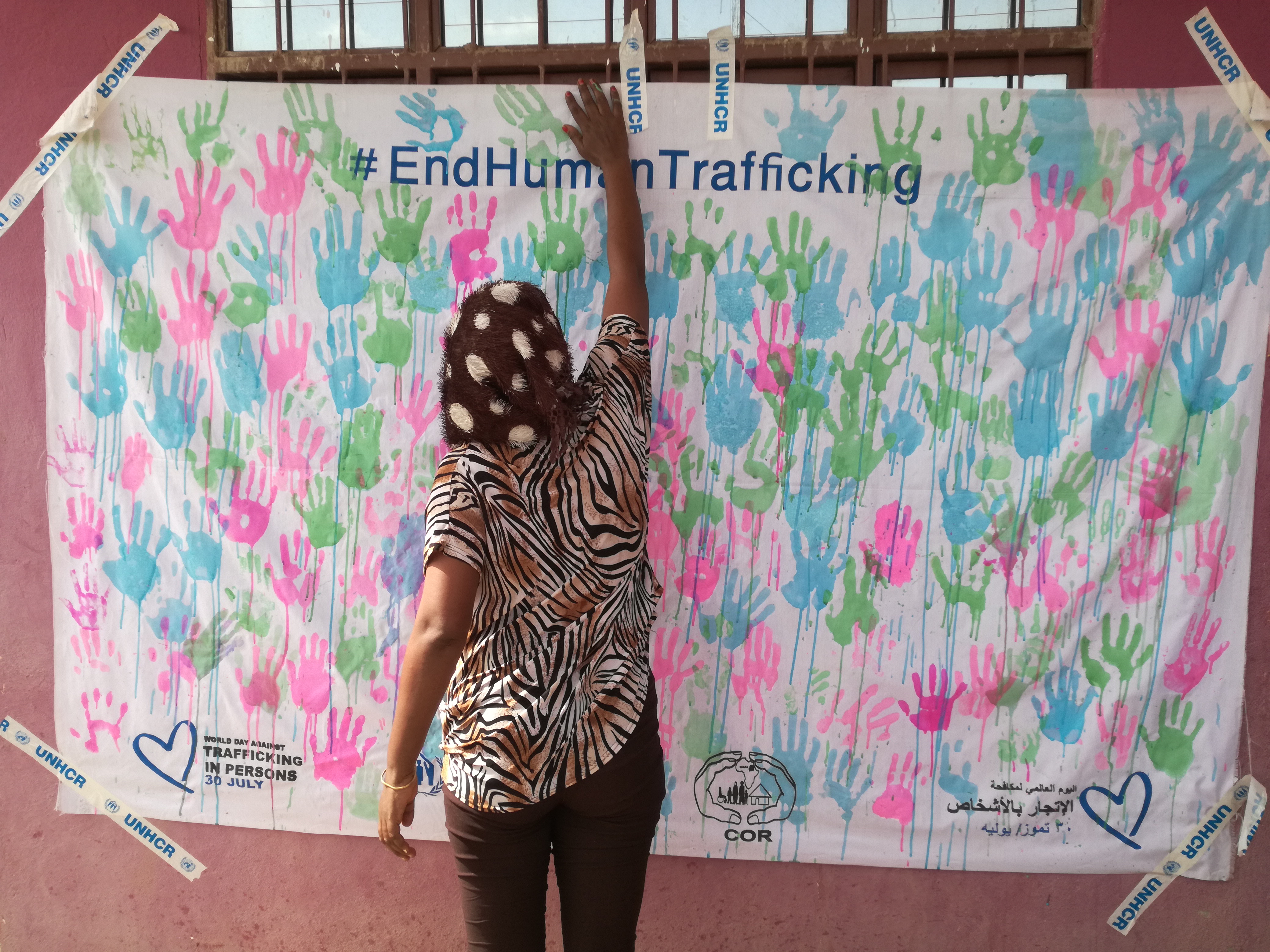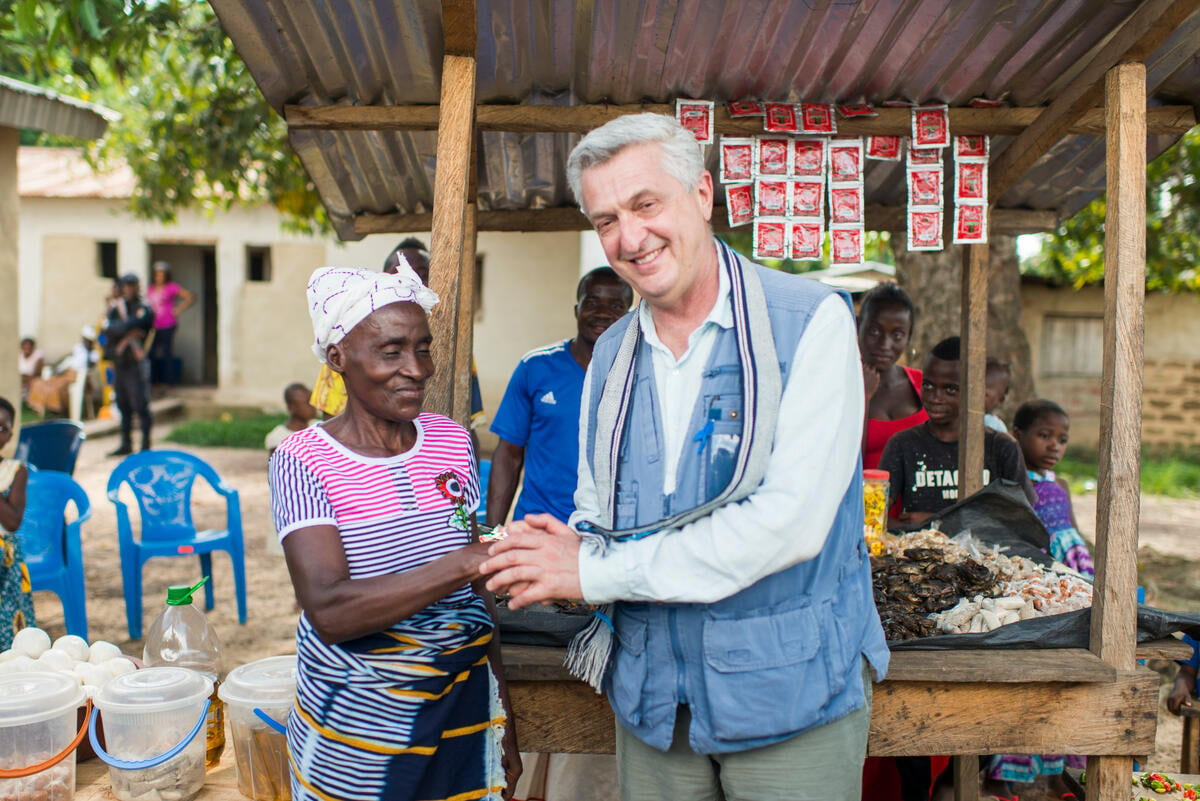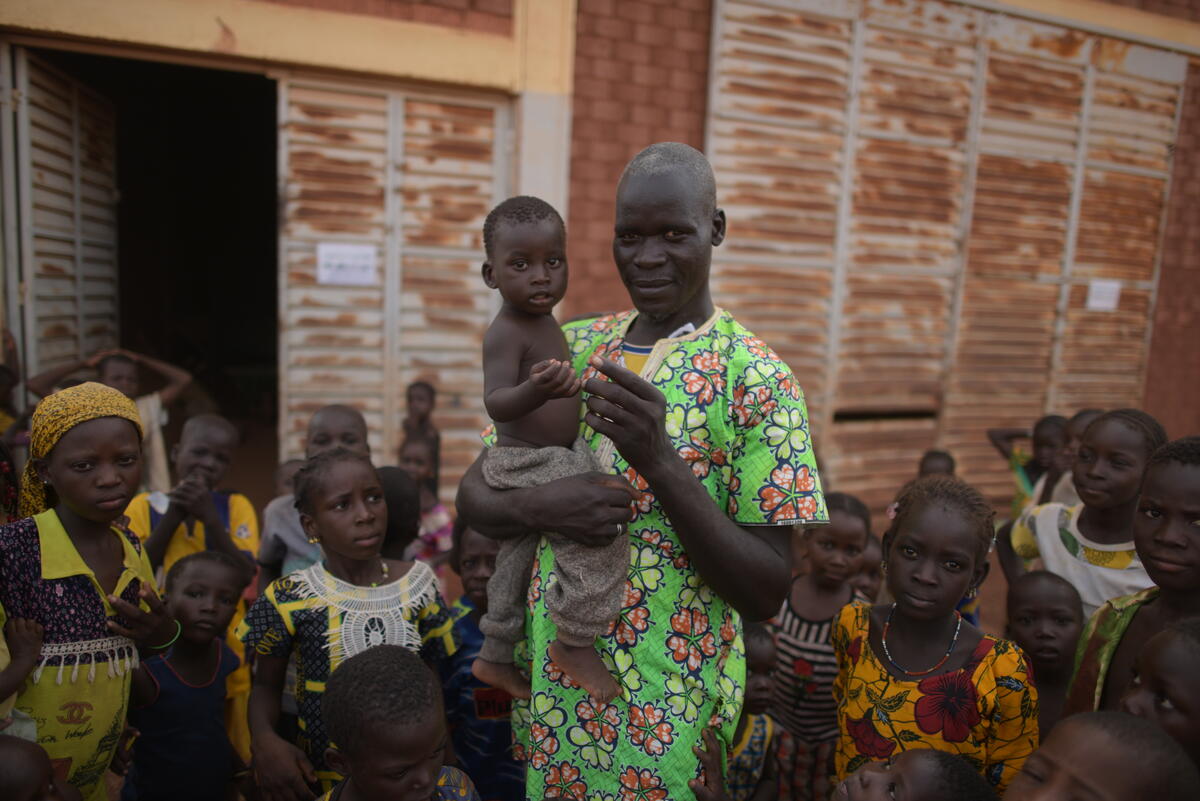UNHCR launches relocation of Ivorian refugees to new camp in Liberia
UNHCR launches relocation of Ivorian refugees to new camp in Liberia
In Liberia this morning, our teams began the relocation of Ivorian refugees from the border area to the newly-established camp at Bahn, some 50 kilometres further west. Around 100 people are being moved by truck from the villages of Old Luguato, Kissiplay and Duoplay in Nimba County. UNHCR staff and other humanitarian workers have been helping people board the trucks and load their few belongings.
Road conditions in this part of Liberia are extremely poor, and this has made it difficult to help refugees and the host communities they have been living in - comprising some 76 villages. The UN Mission in Liberia has helped by grading road surfaces, but today's journey is nonetheless expected to take around six hours. The Bahn camp is within easier reach of our offices in Saclapea. Refugees there will have ready access to basic services in the camp such as healthcare, clean water and primary school education in French based on the Ivorian curriculum.
Over the coming weeks we plan to move 15,000 refugees into the Bahn camp, although the final number will depend on how many people wish to be relocated. A partner, the Norwegian Refugee Council, is constructing shelters in the camp that families will be able to occupy on arrival. With subsequent larger arrivals people will initially be able to stay in the camp transit centre where they will be provided with materials to build their own shelters.
In total, UNHCR has so far registered 38,257 refugees in Nimba County of Liberia, all of whom have fled Côte d'Ivoire amid the instability following November's elections. We continue to see people coming across the border at an average rate of around 100 people a day.
Most of the refugees that we have spoken to have told us they want to be relocated to the camp. However, there are also others who prefer to remain amid local communities and we have identified 15 locations where we will begin moving them next week. Many of these are refugee women who say their husbands stayed behind in Côte d'Ivoire and are likely to join them later.
In both the camp and relocation villages, vulnerable persons such as the physically challenged, visually impaired or unaccompanied elderly will be assisted with shelter construction.
Bad road conditions and heavy rain are potential challenges to the relocation. However, we have reached an agreement with the government to rehabilitate the 78 km Saclepea - Bahn - Buuto road and rebuild bridges and culverts ahead of the rainy season in April. The rehabilitation of this route will considerably reduce the travelling time from refugee influx areas to the camp and relocation villages.


